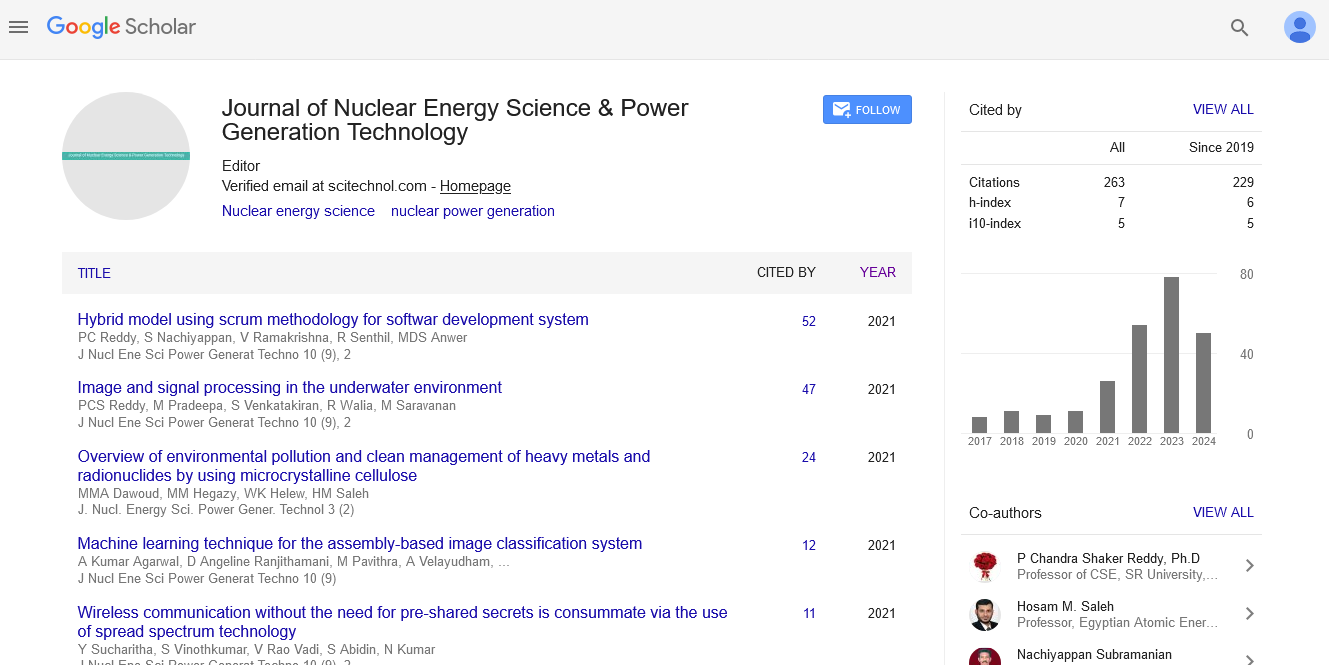About the accuracy of thermal overhead line monitoring systems
Andreas Kubis
TU Dortmund University, Germany
: J Nucl Ene Sci Power Generat Technol
Abstract
The transformation of fossil-fired electrical energy systems into more and more weather-dependent sys-tems requires the efficient use of existing grid infra-structures. In this context, the application of methods which make optimal use of the thermal loadability of overhead lines is advantageous from an economic and regulatory point of view. Worldwide, network opera-tors are starting to increasingly apply the concept of dynamic line rating, although the operating experience is low and successfully tested methods are relying on divergent approaches. The comparison and the evaluation of these approaches requires detailed ref-erence measurements of overhead line temperatures over time and space, which however are not available due to the extensive length of overhead lines and its associated local and temporal frequently changing weather conditions. In this presentation, a simulation environment providing a reproducible temperature reference with exact knowledge of space and time is presented. The simulation is based on an electrothermal overhead line modelling approach, which en-ables the systematic examination of weather-based measurement systems as well as measurements relying on the continuous estimation of line impedance parameters with synchrophasors. In contrast to conventional direct temperature measuring systems, the aforementioned systems offer the advantage of mini-mal invasive integration into existing networks. Fur-thermore, a combination of these systems is presented. It is shown how this approach enables more flexible and more precise temperature measurements, than the original stand-alone systems.
Biography
Email: andreas.kubis@tu-dortmund.de
 Spanish
Spanish  Chinese
Chinese  Russian
Russian  German
German  French
French  Japanese
Japanese  Portuguese
Portuguese  Hindi
Hindi 

